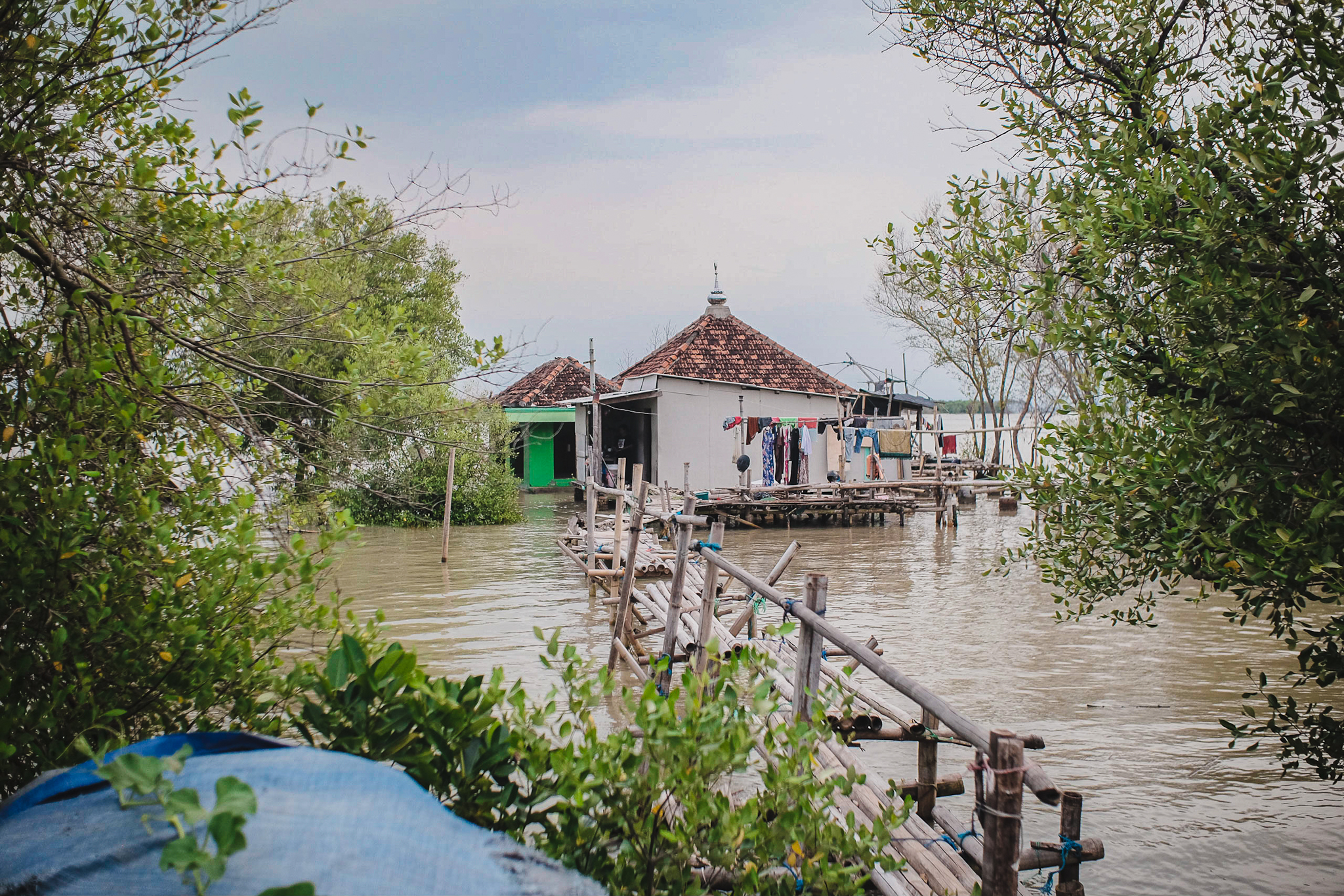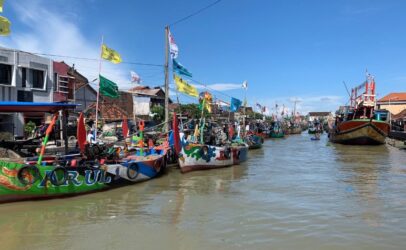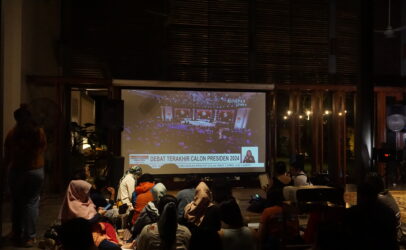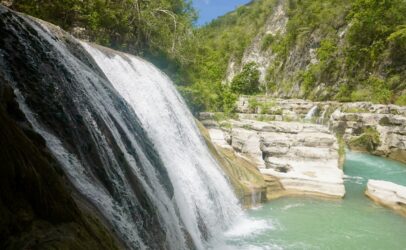
Author: Karunia Haganta
Editor: Fadilla D Putri
Translator: Nisrina Nadhifah
While the climate crisis necessitates shared responsibility, it often becomes a pretext for some to exploit and worsen the situation, as Nixon (2005) notes, climate crisis leads to a form of “slow violence” with cumulative, insidious impacts. This exploitation not only perpetuates environmental harm, but also obscures the identities of the perpetrators, leaving victims unaware of the true source of the crisis.
Addressing the climate crisis is significantly hindered by existing inequalities, presenting a major challenge. A crucial solution lies in the establishment of a binding instrument compelling parties to shoulder responsibility commensurate with their positions. This instrument’s primary objective extends beyond merely supporting climate change mitigation efforts; its essence is rooted in the pursuit of climate justice, aiming to rectify the imbalances exacerbated by the climate crisis. This is the urgency of the Climate Justice Bill. The values and principles of climate justice include: (1) Distributive justice; (2) Differentiated and capability-based shared responsibility; (3) Equitable welfare and poverty alleviation; (4) Recognitive justice; (5) Procedural justice; (6) Corrective justice; (7) Intergenerational justice; and (8) Gender justice (Civil Society Coalition for Climate Justice, 2023).
The Climate Justice Bill becomes increasingly urgent, especially for coastal communities where climate change has shifted from a potential threat to a present and severe detriment. In Sangihe, North Sulawesi, rising sea levels and more frequent adverse weather conditions have left residents with no choice but to resort to makeshift survival strategies, relying on sandbags and trees as makeshift embankments (Talib & Limbengpiah, 2020). These communities have been forced to renovate their homes to adapt to the challenging circumstances, all while grappling with the escalating threat to their livelihoods as fish catches become increasingly scarce.
This stark reality extends beyond eastern Indonesia; it echoes on the island of Java, affecting northern coastal regions like Semarang and even Jakarta. In Jakarta, impoverished communities in Cilincing and Kalibaru subdistricts confront the peril of submersion in a pollution-ridden ocean filled with garbage (Padawangi, 2015). Similarly, in Semarang, coastal communities rely on stopgap solutions like sea walls, which offer only temporary respite before succumbing to the encroaching waters (Ley, 2021).
These instances in the three coastal areas exemplify the profound vulnerability of such communities, invariably intertwined with the crises of inequality—be it economic, gender, or spatial. In Jakarta, these challenges compound with issues of poverty, waste, and spatial disparity. Expansive projects like the Pantai Mutiara Integrated Development Zone disproportionately victimize impoverished communities in Cilincing and Kalibaru subdistricts, grappling with the scarcity of clean water and facing escalating threats from rising seas and coastal pollution (Padawangi, 2012).
In Sangihe, coastal communities grapple with the aftermath of gold mines encroaching into residential areas, despite the revocation of mining licenses; the lingering threat of resumed operations looms large (Jong, 2022; Prasetyadi, 2023). Meanwhile, on the north coast of Central Java, particularly in Semarang, the implementation of the Semarang-Demak Sea Toll Road National Strategic Project (PSN) induces ecological peril, triggering land subsidence and exacerbating the crisis of clean water availability (Batubara et al., 2020).
These instances underscore the inseparable links between the climate crisis and multifaceted inequalities—spatial, social, gender, and economic—in coastal areas. It is a testament to the violent nature of the climate crisis, where both the “perpetrators” and their “crimes” are unmistakable. The legal battle over the gold mining license in Sangihe serves as a compelling example, highlighting the need for binding instruments capable of regulating structures that extend beyond the localized impacts of the climate crisis. Notably, the involvement of a Canadian company in the Sangihe case emphasizes the global dimensions of environmental accountability. Similarly, the Pari Island community’s legal action against Holcim for environmental damage and its connection to the climate crisis further exemplify the imperative for legal measures in safeguarding environmental integrity (Nurfaizah, 2023).
Until now, coastal issues have predominantly been tackled from the viewpoint of coastal communities—either through technocratic approaches like reclamation or by enhancing the resilience of these communities. However, the IPCC report (2023: 61) highlights that local-scale adaptation has hit its limits, unable to avert losses and damages. Reclamation efforts in Jakarta, Bali, and Makassar have proven ineffective in addressing the ecological crisis and have, in fact, posed harm to fisherfolk communities (Fabinyi et al., 2022).
The empowerment narrative falls short by failing to create meaningful participation opportunities for vulnerable groups, including women, youth, people with disabilities, the elderly, and the impoverished. On the north coast of Central Java, women’s empowerment remains confined to domestic roles such as fish processing or cooking (SOC Semarang 2023, unpublished). Conversely, in Sangihe, economically disadvantaged women, particularly those with disabilities or the elderly, face barriers to land access. The climate crisis propels young people to migrate in pursuit of better employment opportunities; however, for young women, familial restrictions often prevent them from leaving (Talib & Limbengpiah, 2020). These instances underscore the non-uniform nature of “women’s experiences” and “young people’s experiences” revealing diverse layers of identities that contribute to their varying degrees of vulnerability.
Violence extends beyond the ecological devastation that should be a fundamental right for communities—it manifests in the erosion of livelihoods among coastal communities, compelling them to seek alternative employment, often subjected to cheap and exploitative labour practices (Patel & Moore, 2017). True justice remains elusive if the climate crisis is reduced to a mere “shared responsibility” without acknowledging the plight of vulnerable communities, who are both victims and casualties of profit-driven capitalism. It is imperative to recognize that those disproportionately affected by the climate crisis are often those who have contributed the least to environmental degradation (Thomas, 2022).
Therefore, justice demands the establishment of powerful, binding frameworks—especially through legal means—to hold those in authority responsible for their actions and guarantee essential rights, particularly for vulnerable communities. It is only through the implementation of such measures that we can pursue a response to the challenges posed by the climate crisis that is authentically just and equitable.
References:
Batubara, B., et al. (2020). Maleh dadi Segoro: Krisis Sosial-Ekologis Kawasan Pesisir Semarang-Demak. Bantul: Lintas Nalar.
Fabinyi, M., et al. (2022). Coastal transitions: Small-scale fisheries, livelihoods, and maritime zone Developments in Southeast Asia. Journal of Rural Studies, 91, 184-194.
IPCC. (2023). Climate Change 2023: Synthesis Report. Geneva: IPCC.
Koalisi Masyarakat Sipil untuk Keadilan Iklim. (2023). Kertas Posisi: Koalisi Keadilan Iklim Mendesak Negara Segera Menyusun UU Keadilan Iklim.
Ley, L. (2021). Building on Borrowed Time: Rising Seas and Failing Infrastructure in Semarang. Minneapolis: University of Minnesota Press.
Long, H.N. (2022). Indonesia’s Sangihe islanders score legal victory over mining company. Mongabay, June 20. Accessed from https://news.mongabay.com/2022/06/indonesias-sangihe-islanders-score-legal-victory-over-mining-company/.
Nixon, R. (2005). Slow Violence and the Environmentalism of the Poor. Cambridge: Harvard University Press.
Nurfaizah, A. (2023). September-November 2023, Gugatan Warga Pulau Pari Disidangkan di Swiss. Kompas, May 11. Accessed from https://www.kompas.id/baca/metro/2023/05/11/gugatan-warga-pulau-pari-akan-disidangkan-di-swiss-pada-september-november-2023.
Padawangi, R. (2012). Climate Change and the North Coast of Jakarta: Environmental Justice and the Social Construction of Space in Urban Poor Communities. In Urban Areas and Global Climate Change Vol. 12.
Prasetyadi, K.O. (2023). Koalisi Antitambang Sangihe Siap Menggugat jika PT TMS Dapat Izin Baru. Kompas, September 16. Accessed from https://www.kompas.id/baca/nusantara/2023/09/15/koalisi-antitambang-sangihe-siap-menggugat-jika-pt-tms-dapat-izin-baru.
Patel, R. & J.W. Moore. (2017). A History of the World in Seven Cheap Things: A Guide to Capitalism, Nature, and the Future of the Planet. Oakland: University of California Press.
State of Coast Semarang 2023 (unpublished).
Talib, N. & S. Limbengpiah. (2020). Frontier Islands and Climate Change. New Naratif. Accessed from https://www.researchgate.net/publication/344760897_Frontier_Islands_and_Climate_Change_A_Story_From_Indonesia’s_Sangihe_Islands.
Thomas, L. (2022) The Intersectional Environmentalist: How to Dismantle Systems of Oppression to Protect People + Planet. New York: Voracious.







